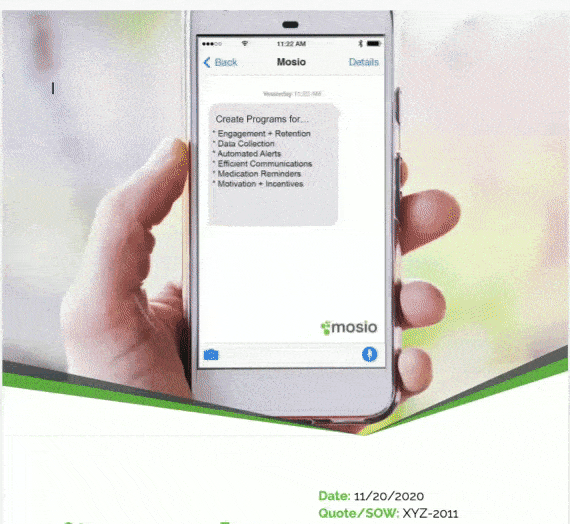REDCap survey examples illustrate how text messaging has become a crucial strategy for maximizing participant engagement and response rates in research.
This highly effective method is vital, considering that SMS surveys boast an impressive 40-50% response rate, significantly outperforming email surveys which typically hover around 15-25%.
An astounding 95% of text messages are opened within three minutes, ensuring your survey reaches participants swiftly and is seen almost immediately.
Struggling to find the most effective way to deliver your REDCap surveys? Do Finding it challenging to achieve high response rates and meaningful engagement from your participants?
This article is specifically designed for researchers and survey administrators seeking to significantly enhance survey response rates and data quality.
What is a REDCap Survey Example?
REDCap (Research Electronic Data Capture) serves as a robust and versatile tool used widely by researchers across various fields to collect and manage survey data. Researchers can design complex surveys and databases, facilitating the collection of high-quality data. One common example of a REDCap survey involves leveraging the power of text messaging to distribute and receive responses.
This method, increasingly popular, ensures higher response rates and enables real-time interaction with participants. Researchers can reach a broad audience quickly and efficiently, making text messaging a preferred delivery method for surveys.
How “Conversations” (The REDCap SMS Survey Feature) Works
REDCap’s SMS Survey feature, known as “Conversations,” sends surveys directly to participants’ mobile phones via text messages. This feature integrates with Mosio on the Direct Plan, allowing a seamless connection between REDCap and participants. In Conversations, the system sends survey questions, and participants’ responses automatically record back into the system.
This automatic flow of information simplifies the process for researchers, eliminating the need for manual data entry or additional software to manage responses. The Conversations feature streamlines data collection and helps maintain the integrity and accuracy of the data, making it an efficient tool for researchers.
Text Messaging Is Ideal For Simple Surveys
Text messaging suits simple surveys with straightforward questions. Surveys that require participants to respond with numbers, letters, or short text responses fit perfectly with this method. The simplicity of the Conversations feature makes it ideal for these types of surveys. Participants receive questions in a familiar format – text messages – and can respond quickly and easily.
This method offers high convenience for both researchers and participants, minimizing the time and effort required to complete the survey. Additionally, the familiarity of text messaging reduces any potential barriers to participation, increasing response rates and the quality of the data collected.
4 Limitations Of REDCap’s Conversations Feature
While REDCap’s “Conversations” feature is great for simple surveys, it does have certain limitations that researchers should be aware of. Its straightforward design, while easy to use, may not support more complex survey needs.
Here are some key limitations:
- Lacks advanced question types.
- Doesn’t support complex branching logic.
- May hinder collection of nuanced data.
- Might necessitate additional tools for comprehensive surveys.
This means that researchers aiming to conduct in-depth surveys with conditional questions or those requiring extensive participant input might find “Conversations” lacking in flexibility and functionality. In such cases, exploring other robust solutions like Mosio becomes essential to capture the full scope of required information.
How Do Mosio’s Text Message Surveys Compare To REDCap’s Conversations?
Mosio offers advanced text message survey capabilities that significantly extend beyond the basic functionalities of REDCap’s “Conversations” feature. While “Conversations” handles simple surveys well, Mosio’s solutions are designed for more complex research needs.
With Mosio’s Basic or Plus Plans, researchers gain access to a suite of sophisticated tools for crafting intricate surveys.
Here are three key differentiators with Mosio:
- Supports advanced question types.
- Enables complex logic and branching.
- Provides robust flexibility for comprehensive designs.
However, it’s important to understand the workflow. Using Mosio’s text message surveys, particularly for these advanced features, typically requires exporting data from Mosio and then importing it into REDCap.
This additional step introduces a layer of data management that demands extra effort and meticulous attention to ensure data integrity and consistency. Despite this, the enhanced features of Mosio’s surveys provide substantial benefits for researchers needing highly detailed and intricate survey designs.
Why Should Researchers Consider Mosio For More Complex Surveys?
Researchers who require more than simple, straightforward surveys should consider Mosio’s text message surveys due to their advanced capabilities. The Basic or Plus Plans offered by Mosio provide the necessary tools and flexibility to create detailed surveys with complex question types, logic, and branching. These features enable researchers to capture comprehensive data, crucial for in-depth analysis and research.
Although using Mosio requires additional steps for data management, the benefits of having a robust and flexible survey tool outweigh these extra efforts. The ability to design and implement more complex surveys allows researchers to gather richer and more detailed data, enhancing the overall quality and impact of their research.
4 Benefits Of Text Messaging For Survey Distribution
Text messaging offers numerous compelling benefits for survey distribution, making it a highly effective method for reaching participants. It stands out due to its unique advantages over other communication channels.
Here are the key benefits:
1 – Higher Open & Response Rates
Text messages have significantly higher open and response rates compared to emails. This ensures more of your audience engages, leading to higher completion.
2 – Real-Time Interaction
Participants can respond immediately, providing researchers with up-to-date data quickly.
3 – Unmatched Convenience
Surveys can be completed on mobile devices at participants’ leisure, reducing burden and increasing participation.
4 – Broad Accessibility
SMS reaches a wide range of participants, regardless of internet access, enhancing sample diversity.
How Can Researchers Maximize The Effectiveness Of Text Message Surveys?
Researchers should implement several strategies to maximize the effectiveness of text message surveys. Keeping surveys short and simple is essential, as lengthy or complex surveys can deter participation. Limiting the number of questions and ensuring they are easy to understand and answer helps maintain participants’ engagement and reduces dropout rates. Providing clear instructions on how to respond to the survey is also crucial.
Participants should know exactly what is expected of them to avoid confusion and ensure accurate responses. Sending timely reminders to participants who have not responded can significantly boost completion rates. These reminders serve as gentle prompts, encouraging participants to complete the survey at their earliest convenience.
Optimizing the timing of survey distribution is another important strategy. Sending surveys at times when participants are likely to be free and able to respond increases the likelihood of engagement. For example, sending surveys during lunch breaks or in the evening might yield better response rates than during busy work hours.
Are There Any Privacy Concerns With Text Message Surveys?
Privacy and data security hold paramount importance when conducting surveys via text messaging. Researchers must ensure that all data collected, stored, and managed complies with relevant privacy regulations and guidelines. Using secure platforms to send and receive survey data protects participants’ information from unauthorized access or breaches.
Obtaining informed consent from participants also serves as a critical step in safeguarding privacy. Participants should be fully aware of how their data will be used, stored, and shared. Researchers should implement measures such as data encryption and secure storage solutions to protect sensitive information. Ensuring data privacy and security protects participants and enhances the credibility and ethical standards of the research.
What Types Of Studies Benefit Most From Text Message Surveys?
Studies that require frequent and quick data collection suit text message surveys particularly well. For example, studies monitoring health behaviors, medication adherence, or daily habits benefit from the immediacy and convenience of text messaging. The ability to send and receive data in real-time allows researchers to track changes and trends more accurately.
Longitudinal studies, where regular follow-up with participants is necessary, also benefit from the use of text message surveys. The ease of reaching participants and the high response rates associated with text messaging make it an ideal method for collecting ongoing data. Studies involving hard-to-reach populations or those with limited access to internet services can achieve better engagement through text messaging, ensuring diverse and representative samples.
How Can Text Message Surveys Improve Participant Engagement?
Engaging participants in research can be challenging, but text message surveys offer several ways to enhance engagement. Personalization of survey messages can increase participants’ sense of involvement and motivation to respond. Tailoring messages to include participants’ names or referencing previous interactions can make them feel valued and more likely to participate.
Offering small incentives or rewards for completing surveys can also motivate participants and boost response rates. Additionally, providing feedback or summary results to participants can make them feel appreciated and more invested in the research. Sharing how their responses contribute to the overall study outcomes can foster a sense of ownership and encourage continued participation in future surveys.
What’s Next For Text Message Surveys In Research?
The future of text message surveys in research is exceptionally promising, driven by ongoing advancements in mobile technology and data analytics. As global mobile device usage continues its rapid ascent, the potential for text message surveys to reach ever-wider audiences also grows significantly.
Future developments are set to revolutionize how researchers interact with participants. Here’s what’s on the horizon:
- More sophisticated real-time data analysis.
- Enhanced automated follow-up systems.
- Highly personalized survey experiences.
- Deeper insights into study populations.
These advancements will enable researchers to gather richer and more actionable data. While REDCap’s “Conversations” feature is suitable for basic surveys, Mosio’s advanced capabilities offer a robust and flexible alternative for meeting more complex research needs.
The continued evolution of text message survey technology, especially through innovative platforms like Mosio, will undoubtedly expand its critical role in research, making it an indispensable tool for efficient data collection and powerful participant engagement in the years to come.






